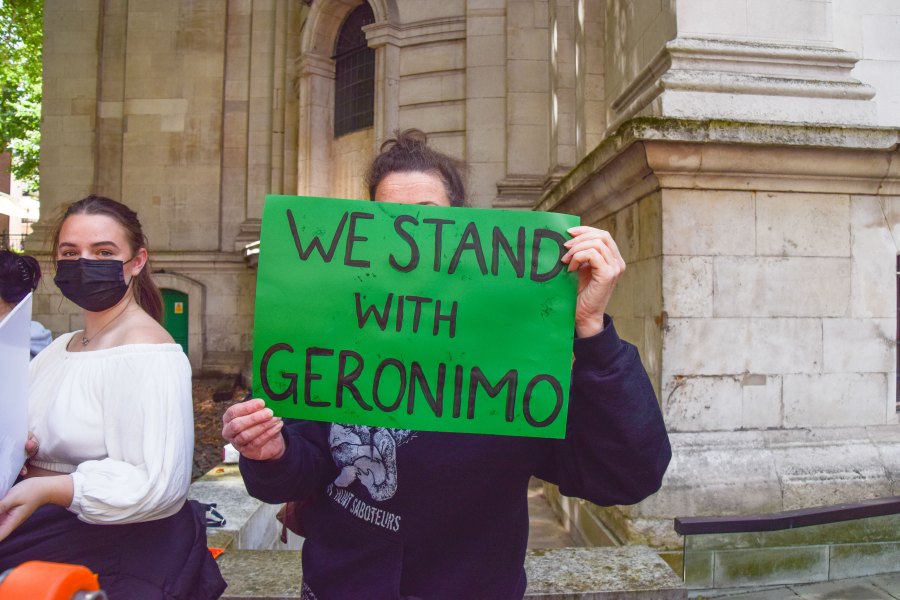Geronimo to be euthanised after last-ditch attempt to save animal

Geronimo the alpaca will be euthanised after a last-ditch attempt to save the animal was rejected by London's High Court.
A judge has rejected owner Helen Macdonald's application for an injunction to stop the destruction order.
Her eight-year-old alpaca, imported from New Zealand, had twice tested positive for bovine TB using the Enferplex blood test, meaning he has to be euthanised under government guidelines.
According to Defra figures, 28,356 animals - the vast majority cattle - were slaughtered due to a bTB incident in England in the 12 months to March 2021, while 205 camelids were culled in 2020.
But it is Geronimo's case which has received significant media attention. Ms Macdonald, who farms in Gloucestershire, believes the two TB tests were false positives, and she has also been refused permission to have a third test.
Ms Macdonald said after Wednesday's High Court session: "It's not over. They seem to want to make it my decision, and make me put my animal to sleep, to get the blood off their hands. I'm not doing it."
Asked what she will do if officials turn up at her Wickwar farm, she said: "Well, we'll just obstruct. I don't want to break the law. I'm not a criminal.
"They're trying to make me into one but I'm not a criminal. I will obstruct anyone who comes on to my farm."
Last week, campaigners staged a protest outside Downing Street over the issue, while more than 100,000 people have signed a petition calling for the Prime Minister to intervene.
Elsewhere, around 30 people, including fellow alpaca farmers, recently gathered outside Defra’s headquarters in Smith Square, Westminster.
But a Defra spokesperson insisted the testing results and options for the alpaca had been carefully considered.
"Bovine tuberculosis is one of the greatest animal health threats we face today and causes devastation and distress for farming families and rural communities," the spokesperson added.
"Therefore, while nobody wants to cull infected animals, we need to do everything we can to tackle this disease to stop it spreading and to protect the livelihoods of those affected."








